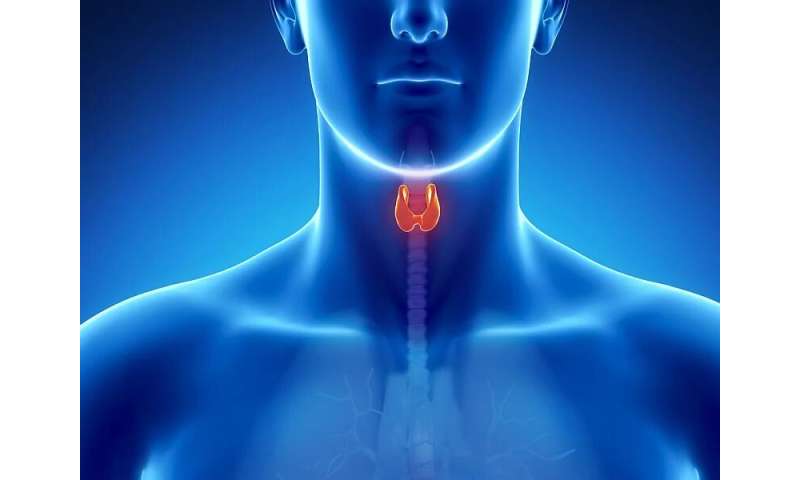
(HealthDay)—There is no association between treatment type for hyperthyroidism and later risk of solid cancer mortality, according to a study published online July 23 in JAMA Network Open.
Cari M. Kitahara, Ph.D., from the National Cancer Institute in Bethesda, Maryland, and colleagues examined data from 31,363 patients treated at multiple centers for hyperthyroidism (1946 through 1964). Follow-up continued through December 2014 (mean, 26.0 years). Solid cancer mortality rates in each treatment group (radioactive iodine [RAI], antithyroid drugs [ATDs], surgery, or a combination of these treatments) were compared with expected rates from the general population.
The researchers found that after excluding prior cancers, solid cancer standardized mortality ratios (SMRs) were not elevated in any of the treatment groups (SMRs: 0.82 for surgery only [95 percent confidence interval (CI), 0.66 to 1.00], 0.90 for drugs only [95 percent CI, 0.74 to 1.09], 0.88 for drugs and surgery [95 percent CI, 0.84 to 0.94], 0.90 for RAI only [95 percent CI, 0.84 to 0.96], 0.66 for surgery and RAI [95 percent CI, 0.52 to 0.85], 0.94 for drugs and RAI [95 percent CI, 0.89 to 1.00], and 0.85 for drugs, surgery, and RAI [95 percent CI, 0.75 to 0.96]). There were no significantly elevated risks seen for solid cancer death in any treatment group. There was a significant increase noted in risk for solid cancer mortality across levels of total administered activity among RAI-treated patients (hazard ratio, 1.08 per 370 MBq; 95 percent CI, 1.03 to 1.13); among patients treated with only RAI, this association was stronger (hazard ratio, 1.19 per 370 MBq; 95 percent CI, 1.09 to 1.30).
“The findings suggest that the association between radioactive iodine treatment and solid cancer mortality is dose dependent,” the authors write.
Source: Read Full Article